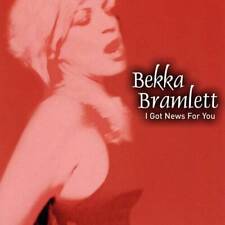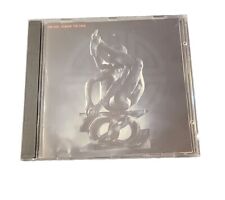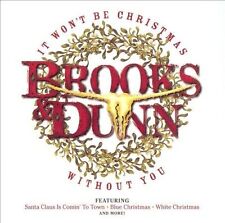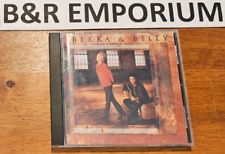|
MOJO, Sound Your Funky Horn - Mick Fleetwood MOJO, Issue 25, December 1995 Sound your funky horn - MICK FLEETWOOD Shake Your Moneymaker
From Fleetwood Mac LP 1968 (Blue Horizon) My ineptness to do separate things at speed became my style of drumming. When it got to a certain speed in the early days, the only way I could hang in there was if all my hands and feet were doing the same thing on the same beat. Shake Your Moneymaker is one where everything is going flat out and doing the same thing, so it kind of defines my style, the ultimate blues shuffle. Onstage it often ended up three times faster than the album version, and that's already fast enough. As a song, it's what the original Fleetwood Mac was all about. Elmore James was top of the list. Dust My Broom and so forth, endless funky, chunky shuffles and, in retrospect, I must say we were darn good at doing them. At that time, though, we didn't actually know what we were doing, we were just doing it. Red Hot Jam
From Blues Jam At Chess LP 1969 (Blue Horizon) This was just a riff we used to jam around on live a lot. I have a curious problem, partly, I think, because I'm dyslexic. I keep perfect time but I can lose track of where the off-beat or the on-beat is. Now if you're halfway through a song and the drummer changes from the on-beat to the off-beat, it's like a train wreck. It happened once at The Marquee. In full audience glare, I lost it. Pete was laughing at me, but you have to keep going, and Pete came back, physically grabbed my wrist and put me back in time. I nearly died of embarrassment. When we went to Chess Studios in Chicago, we had the absolute thrill of jamming on the same thing with Buddy Guy, Willie Dixon, Otis Spann. When we walked in, these old guys were going, like, "OK, we'll do this, but we really don't know what these little punks think they're playing at." They were friendly, but they had no idea what to expect. When we actually started playing, they suddenly realised that Peter was for real. They didn't understand it. Why this should be coming out of England blew anyone's logic. Oh Well
Single 1969 (Reprise) In the Peter Green era, a lot of stuff we did was harder than it sounded. Guitarists still ask me how Peter played that Oh Well riff. What it is, is that there's a couple of notes in there where he bent the chord so that certain notes sounded like other notes. That song drove me crazy because it's a very structured song. I was used to counting in, starting and then steaming ahead and then finishing, but Oh Well is so tightly structured that you have to pay attention all the time. The famous little cowbell signature was a mistake, but Peter liked it and decided to keep it in. So I had to re-learn my mistake, which was not easy. I did it OK on the recording but the hardest thing was miming it for Top Of The Pops because it happens when nothing else is going on. It had to look perfect. So for 10 days I took a little portable tape recorder everywhere with me to get it right. In the end I greased it off really well. Man Of The World
From Live At The BBC LP 1995 (Castle Communications) This is the song that breaks my heart. It has some great sections, a totally composed song. You cannot substitute technique for feeling, because feeling will always win out. Man Of The World is somebody, it's Peter Green, crying out at an early stage, and I now wish I'd realised it at the time, because as a friend I might have been able to help when he went into his darkness of depression. This is everything about Peter, certainly prophetic, in the sense of what later happened to him and the journey he took. I lost the person I knew for a while, but I'm happy to say he's back in my life and doing pretty damn good in terms of coming back into the everyday bustle and hustle of life. Hypnotized
From Mystery To Me LP 1973 (Reprise) In England our Bob Welch period meant very little but in America we were doing OK on the underground college circuit. Hypnotized is classic Bob Welch from a relatively unknown era of Fleetwood Mac that gets overlooked. It was one of Bob's first songs for us, and lyrically interesting because it deals with UFOs, which he was fascinated by. I started a groove in the session, we added the band when we rehearsed it. It's so damn simple. Ba-ba-ba-bom, ba-ba-ba-bom, ba-ba-ba-bom, ba-ba-ba-bom. No drum fills, nothing. It's so simple, but drummers used to ask me how to do it. It's nothing but a snare drum and the rest of the beats are on a bass drum, fairly briskly played, yet they never cop it. This is also the beginning of the vocal harmonics which later became our trade mark. Go Your Own Way
Single 1977 (Warner Bros) I don't write songs in Fleetwood Mac, but I have to say I have a lot to do with how they end up. Most of my best ideas are glorious accidents, but there's a great knack in learning to be objective about your accidents. Go Your Own Way's rhythm was a tom tom structure that Lindsay [sic] [Buckingham] demoed by hitting Kleenex boxes or something to indicate what was going on. I never quite got to grips with what he wanted, so the end result was a mutated interpretation of what he was trying to get at. It's completely back to front, and I've seen really brilliant drummers totally stumped by it. When Lindsay [sic] went out on his own, he took three drummers onstage and they did Go Your Own Way, but they couldn't get it right. It's a major part of that song, a back to front approach that came, I'm ashamed to say, from capitalising on my ineptness. Tusk
Single 1979 (Warner Bros) This came from a riff we used to jam on in soundchecks. When we started the album we worked on it but everybody lost interest in it. It went in the dustbin for about a year until I pulled it out again. I took it with me to Normandy as a rough track and had the idea of using a brass band and about 45 drummers. When I said I wanted to record the USC Marching Band at Dodger Stadium they were sure I'd gone round the twist, so I paid for it myself. We even filmed it, and they really thought I'd blown it, way off the deep end. Despite having virtually no lyric, it became one of our biggest hits. It really worked and it's a glorious noise, something I'm very proud of. I still find it on juke-boxes. And later, we got to play live with the marching band which was marvellous. Rattlesnake Shake
From Mick Fleetwood solo album The Visitor 1981 (RCA) I did this just for me. A lot of what I do is for Fleetwood Mac, so I suppose I indulged myself. Rattlesnake Shake is an old Peter Green song about my ample habits as a young masturbatory male. I'd leap out of the van, they'd turn the lights on me and I'd mimic the art of wanking. I redid it in Ghana with a fantastic drum ensemble. I took a mobile studio to Ghana at great expense, because I knew I'd find great drummers there. The eldest guy was just 14 and the master drummer was seven years old, and it absolutely blew my mind. I took it back to England, put the London Philharmonic on at the end, and I even got Peter to add a little bit of guitar at the very end. It's that same old magic, one note reverb sound just put in the right place, and of course he sang it. Shakin' The Cage
From Shakin' The Cage LP by Mick Fleetwood's Zoo 1992 (Capricorn) The title track epitomises what we were doing musically. There's a fun drum break in the middle, almost the same approach as that wild thing in the middle of Tusk. Totally off the wall, a combination of conventional kit playing and other percussion. I formed Zoo with an Australian singer, Billy Thorpe, who was a great influence on AC/DC and people like that. It turned out to be almost a training ground for young Bekka Bramlett, who is now in Fleetwood Mac. Billy Burnette, also now in Fleetwood Mac, wrote Shakin' The Cage with Billy Thorpe, so, atmospherically, those sessions brought energy back to Fleetwood Mac. I liked that band a lot. We nearly had a shot at making it, but then probably if we had, Bekka Bramlett wouldn't be in Fleetwood Mac, and it would be my side-band. The Strange Times
From Time LP 1995 (Warner Bros) This is almost new age meets Burundi. It's a spoken word piece of mine, using a lot of drums I got in Ghana. I mean, I haven't opened my gob in nearly 30 years, but I had this little philosophical anecdotal thing I just had to get off my chest. It means a lot to me. The subject matter is inspired by Peter Green, but it's also about me. I nearly destroyed myself with drugs and alcohol and crazy behaviour, and this is a positive thought mode that you can get out of the dark, into the light. I was a functioning addict for a long time. It wasn't as bad as it sounds, because as long as I had my stuff, I functioned perfectly normally and looked just like anybody else, but I was dependent on drugs to maintain that state. So this song is about getting out of that mire. Thanks to Julie for posting this to The Ledge.
|









